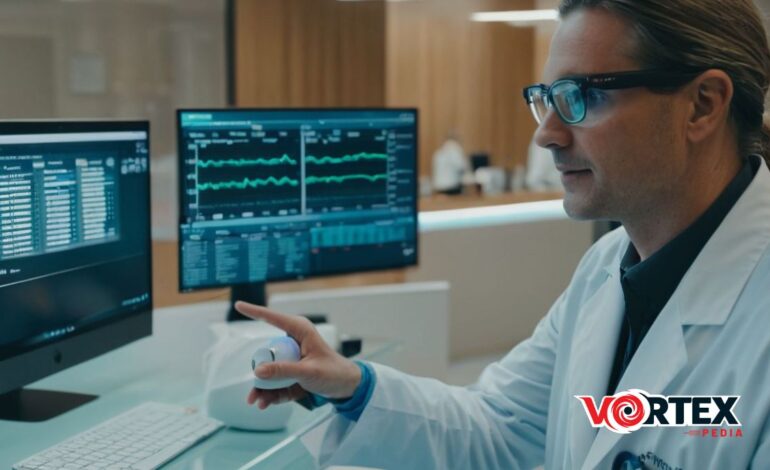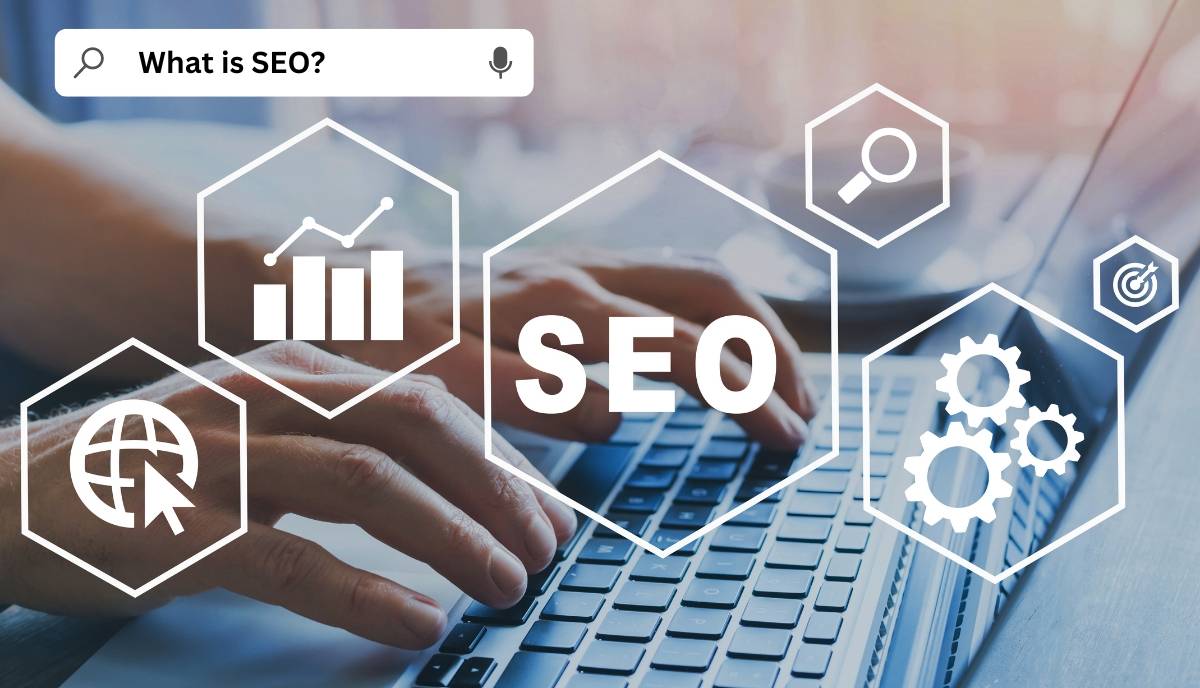
How Technology is Revolutionizing the Healthcare Sector Across the World
In the field of healthcare delivery systems, technology has made a dramatic shift in its application. This revolution has been mostly brought about by innovation in hospital software and website development which has positively impacted patient care and made clinical procedures to be more efficient. Thus, it is appropriate to discuss the changes these technological innovations have brought to the global healthcare system and consider their effect on hospitals and patients.
How Software Can Improve Hospital Efficiency
The application of hospital software has become inevitable in the contemporary management of health facilities. The extent of its application in the automation and subsequent optimization of a number of processes within the sphere of a hospital’s functioning cannot be overemphasized.
Electronic Health Records (EHRs)
Another enhancement that has taken place in the software of the hospital is the contractual EMRs. EHRs which are a more advanced version of records compared to paper-based records, allow an automated capture of patient’s data in a system that is easily accessible to qualified medical practitioners. From paper-based systems to electronic records it has been beneficial in minimizing mistakes, and advancement in care coordination and patient safety. Records stored in EHRs enable the practitioner to access patients’ histories more quickly, which in turn aids in the diagnosis and treatment process.
Billing and Insurance
Similar to the case of billing and insurance, even the processes being performed in the hospitals have undergone significant changes due to technology. With the help of automated billing, the processes of claims and payments are perfected, which means that healthcare workers do not have to spend considerable time on such procedures. Such automation reduces on costs and losses as a result of human errors or delays in the processing of insurance claims. Rather than spending more time on paperwork and delaying the reimbursement times of the hospitals, early computerization of hospitals results in efficient time spent on the patient and his/her treatment.
Inventory Management
Hospitals are among the facilities where the implementation of software has been quite effective in particular concerning inventory management. Inventory management of medical supplies requires the utmost attention because ineffective utilization contributes to increased costs and lesser efficiency. Computerized tools for inventory tracking in hospitals are important for tracking inventory status in real-time, thus providing for the essential stocks while at the same time minimizing situations where there are excess stocks. It also results in efficient resource utilization and hence, cost-effectiveness.
Patient Engagement through Website management
In the modern world, a website is one of the significant instruments that is useful for hospitals, especially with the consideration of the Indian context. They provide multiple features that assist patients and improve their healthcare journey.
Online Appointment Scheduling
Another advantage of hospital sites is having an opportunity to set appointments through the Internet. This aspect enables the patient to make appointments and reschedule without having to call or go to the clinic physically. It cuts the time that a patient has to spend waiting for an appointment and at the same provides an organized and comfortable means for appointment booking.
Health Information
According to my estimate of %43, it can be concluded that the websites of the hospitals are effective sources of health information. Thus, these websites which offer accurate and current health information enable patients to make the right decisions. It is pivotal for patients to get information about different diseases’ causes, diagnosis, and possible prevention, as well as treatments, so this aspect will also benefit them.
Patient Portals
Patient portals are another very important service area that is often availed through the websites of the hospitals. These S2C2-SS initiative secure sites provide patients with a way to view details such as their medical history, lab results, and medications. As online tools help patients access and update their records, patient portals contribute to increased openness of the process and personal engagement in the process of care delivery.
Telemedicine: Improve Access to Healthcare
Therefore, telemedicine is the most prominent innovation that can be viewed as filling the gap between patient and doctor. Telemedicine has become essential in areas such as Bhopal, India to increase access to health facilities.
Virtual Consultations
Telemedicine is the delivery of care through the use of telecommunications technology that makes it possible for patients to interact with the healthcare providers without physically visiting the clinic. This capability is useful for decreasing the length of time patients have to spend, and for increasing the number of specialist consults especially in regions with few human resources in health care. Telecommunication and related technologies such as video and other forms of remote communication serve as the basis for virtual consultations, which can spare the patients the time and money they would spend on traveling to see a doctor.
Remote Monitoring
In patients with chronic diseases, it has been noted that remote monitoring is definitely an effective tool. As a result, using wearable devices and other technologies, healthcare providers are able to track the patient’s health status, being away from the hospital, in real-time. This continuous monitoring will also aid in the imminent signification of possible complications, less hospitalization of the patient, and overall enhancement of lives.
Data Analytics: Informed Decision-Making
Hospital information systems are increasingly applying data analysis techniques and knowledge-discovering abilities in software and website design for making smart decisions in healthcare delivery.
Tracking Patient Outcomes
The use of data analytics lets healthcare providers monitor results and trends concerning their patients’ conditions. Thus, by analyzing the data sourced from EHRs and other patients’ feedback, the providers can define trends, and assess the impact of treatments and care to make better decisions on relevant quality enhancement.
Optimizing Resource Allocation
This research underlines how information related to resource allocation could improve hospital management. From the gathered data, management can be able to make decision concerning staffing, equipment, and supplies. This makes sure that resources are not wasted and at the same time, helps the hospitals to be ready to meet consumer needs.
Case Studies – Health Industry of India
Various hospitals and healthcare centers in India have effectively implemented technology initiatives to improve patient care and the operational effectiveness of the provisioning deliverables. These secondary accounts illustrate that technological improvements are capable of turning people’s lives around for the better.
Bhopal Memorial Hospital & Research Centre
Telemedicine services have been adopted at the Bhopal Memorial Hospital and Research Centre, which also uses electronic health records. The integration is positive as it has enhanced the engagement and coordination of patients’ care hence enhancing the health outcomes by offering proper treatment on time.
AIIMS Delhi – All India Institute of Medical Sciences
AIIMS Delhi has developed a comprehensive hospital software system because most clinical processes can be managed electronically and this cheapens administration costs drastically. The institute immensely benefited from the adoption of advanced technology regarding operations and service delivery to the patients.
Challenges and Future Directions
However, there are still issues affecting the implementation of technology in the delivery of healthcare services.
Digital Literacy
I believe one of the least solved problems remains the inequality gap in digital literacy between patients and doctors. Full preparation of people for technology and equipping them with the right skills to handle the digital tools is therefore imperative for the realization of the benefits of technology.
Data Security
Another important consideration that has to do with data is the aspect of security to the data that is collected and stored in the database. Specifically, the protection of patient data should meet the confidentiality, integrity, and availability principles. Security in healthcare facilities particularly hospitals is very critical and thus hospitals should employ adequate security measures to minimize the odds of leakage of important details.
Interoperability
It is crucial to integrate the various healthcare systems so that they can efficiently transfer data with one another. Issues of compatibility should be solved in order to facilitate the integration of several technological tools and improve the general healthcare system.
The Future Of Healthcare Technology
With the advancement of information technology, the prospect of improving healthcare in the future has vast potential. A surge in the utilization of artificial intelligence (AI) as well as machine learning will become apparent in increasing the reliability of a diagnosis and work on individual approaches to the treatment. New technologies such as telemedicine and remote monitoring will continue to enhance the delivery of health care especially in rural areas. Also, there will be greater improvements in the provision of technology that will enable patients to be offered solutions that they need based on their status.
Conclusion
The introduction of technology in the field of healthcare has led to a drastic change in the provision of care, the processes within the clinics, as well as the productivity of the facilities. The revolution has been highly precipitated by the use of hospital software and website development specifically in areas such as Bhopal in India. Analyzing the issues and prospects of the technological enhancement of healthcare, it is possible to conclude that its future looks promising. It illustrates that healthcare will continue to be amongst the most dynamic spheres that technology contributes to the further development of.








